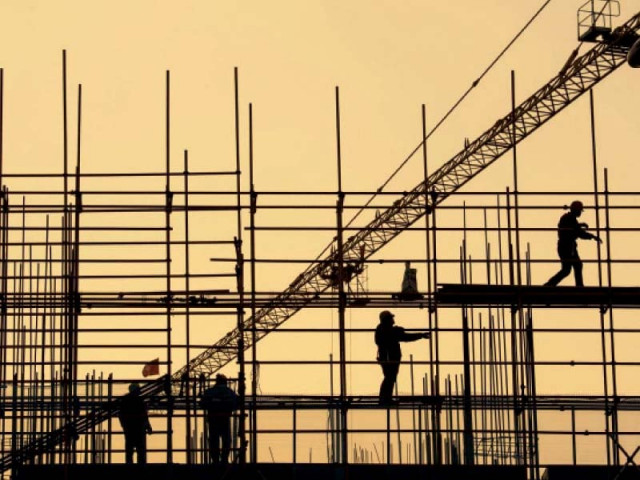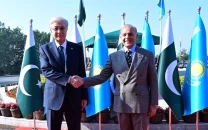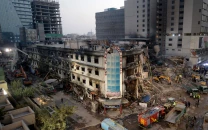Chinese investors pour money in Faisalabad
Around 28 companies will invest an approximate $1b to build mega projects

Faisalabad – the country’s equivalent of Manchester – is one of half a dozen nodes that China and Pakistan are keen to develop as part of the multi-billion dollar strategic initiative of the China-Pakistan Economic Corridor (CPEC).
As part of the second phase of CPEC, two special economic zones are being focused in the third largest city of Pakistan, which aim to boost industrialisation through relocation of industries from China.
China and Pakistan are developing Faisalabad as a major industrial hub of Pakistan. The special economic zones will provide Chinese industries a friendly environment to reposition to Pakistan. In the coming years, as the industries begin operations of their units the country may see its export soar to double digits. The facilities of these economic zones will push Chinese industries to Pakistan.
Faisalabad is the second largest industrial city of Pakistan. The Faisalabad Industrial Estate Development and Management Company (FIEDMC) has established two mega industrial estates in Faisalabad. The M-3 industrial estate, which is spread over 4,500 acres of land, and the Allama Iqbal Industrial estate, which is being built on 3,217 acres of land. Prime Minister Imran Khan inaugurated the industrial estate at the start of this year. This project is expected to create over 300,000 jobs. The M-3 industrial estate has been sold out where many countries have invested, including China. In order to facilitate the industrialists, the import of machineries has been zero rated.
No doubt, the world’s largest companies are investing here but the share of Chinese companies is significant. “Major Chinese industrial groups are investing in these industrial estates,” said Faisalabad Industrial Estate Development and Management Company (FIEDMC) Chief Executive Officer Aamir Saleemi.
Firstly, around 28 Chinese companies are investing an approximate $1 billion to build the mega projects in different fields like textiles, pharmaceuticals, chemicals, food processing plants, construction materials, perfume units and packages sectors. About eight other major groups of China are also signing Memorandum of Understating with the FIEDMC to invest in special economic zones.
Saleemi said that the number of Chinese firms investing in Faisalabad industrial estates will be over 100 by next year. The Chinese investors are feeling free to invest in Pakistan. Exports of Pakistan will jump to double digit in the upcoming five years, if this investment is materialised, he added.
He said that these industrial estates have created a new era in the field of progress and development.
The industrial plots in the first M-3 industrial city have been sold out and this development will create many job opportunities. In future, Faisalabad will again establish itself as the ‘Manchester of Pakistan’ on the world map. There are many units, which are becoming operational and many are under construction. In the next three to five years the economy of Pakistan is likely to witness a significant boost. The Chinese power firms are also setting up 700 megawatt power project in M-3 and Allama Iqbal Industrial City under the umbrella of Faisalabad Industrial Estate Development and Management Company. The estimated cost of the project is $630 million.
FIEDMC Chairman Mian Kashif said that the mega industrial estates will enhance the exports of Pakistan from all the fields.
“In future Pakistan economy would be growing, subject to implementation of Special Economic Zones plans. The projects will not only contribute to the GDP but also increase of exports.” Kashif said that Faisalabad has relatively prospered.
The joint cooperation with Chinese investors will not only boost economic growth, but it will also help to provide large number of people with employment. As many as 28 Chinese companies are building their manufacturing units and some are operational. “We are providing one-window operation facility for the Chinese investor,” Kashif added.
He said that the total covered area of both industrial zones is 8,500 acres of land which is Pakistan’s largest industrial estate.
These industrial zones are linked with motorways to easily connect with the other cities of Pakistan for transportation of goods.
But there is a need to finalise the incentive package for the Chinese investors that want to relocate from China to Pakistan. It has been over five years that Pakistan remains unable to finalise these incentives. There has been disagreement between the federal government and the provincial governments over bearing the cost of incentives
If Pakistan remains unable to finalise these incentives, the Chinese investors have options to relocate to Vietnam and Bangladesh. Pakistan needs to step up its efforts or else the goal to make the country an industrial hub will remain a dream.
The share of industrialisation has already gone down from around 26% to less than 20% of the size of the Gross Domestic Product.
The writer is a staff correspondent



















COMMENTS
Comments are moderated and generally will be posted if they are on-topic and not abusive.
For more information, please see our Comments FAQ